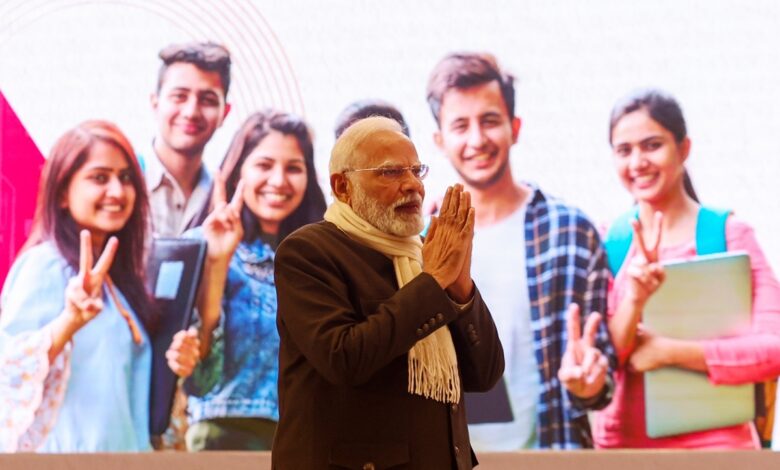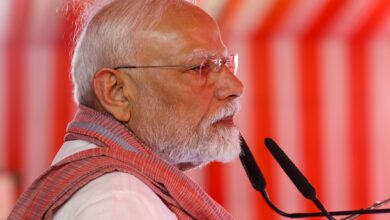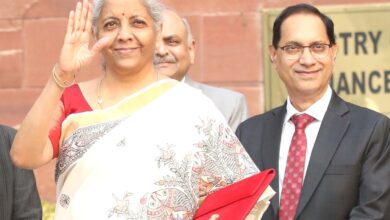Eighth Pay Commission may boost minimum salary of Govt employee to Rs 40K; know the details
The Last Pay Commission was established in 2016, which recommended the minimum pay jump from 7,000 per month to 18,000 per month with a fitment factor of 2.57 times of basic pay. The maximum ceiling is 2.5 lakhs per month.

The central government on January 16 announced a decision to set up the 8th Pay Commission to revise salaries and allowances of over 1 crore employees and pensioners. The decision was taken at a meeting of the union cabinet chaired by Prime Minister Narendra Modi, Union Information and Broadcasting Minister Ashwini Vaishnaw said at a media briefing.
“We are all proud of the efforts of all Government employees, who work to build a Viksit Bharat. The Cabinet’s decision on the 8th Pay Commission will improve quality of life and give a boost to consumption,” Modi said in a post on X.
The commission will give its recommendation on revision of salaries of nearly 50 lakh central government employees and allowances of about 65 lakh pensioners.
A pay commission is constituted by the central government once in every 10 years to revise the salary structure of its employees and determine pension payments. Since 1947, seven Pay Commissions have been established.
The recommendations of the 7th Pay Commission were implemented in January 2016 by the Modi government. The 4th, 5th and 6th Pay Commissions also had 10-year terms. The recommendations included a salary hike of 14 per cent for government officials.
The 7th Pay Commission was constituted in 2014 and its recommendations were implemented on January 1, 2016. The chairman of the 7th Pay Commission was Justice Ashok Kumar Mathur.
Role of Pay Commission
Central Pay Commissions are set up by the union government to review and recommend adjustments in the salaries and pensions of government employees. These pay commissions give recommendations on the required salary and pension adjustments for government employees keeping in view for inflation and other economic conditions.
Eighth Pay Commission’s impact on Salary
According to Krishnendu Chatterjee, Vice President at TeamLease, salaries of the central government employees would go up by Rs 40,000 to Rs 45,000.
“The Last Pay Commission was established in 2016, which recommended the minimum pay jump from 7,000 per month to 18,000 per month with a fitment factor of 2.57 times of basic pay. The maximum ceiling is 2.5 lakhs per month. Considering the inflation factor, there are indications that the fitment factor may stay between 2.5- 2.8 times, which will give a significant boost to employee salaries between Rs 40,000 and Rs 45,000. There are also suggestions of Performance based pay hike which are still under deliberation,” Chatterjee said.
D K Srivastava, Chief Policy Advisor, EY India, said: “With the constitution of the Eighth Central Pay commission in 2025, increases in the salary and pension expenditures of the central government employees would start getting reflected in the central budget for FY27 onwards. Since state governments have generally undertaken revisions in their salary and pension expenditures, there would be corresponding increases in their budgets possibly with some lags. However, arrears may have to be given in due course. As a result, there would be tangible increases in government revenue expenditures affecting the Sixteenth Finance Commission estimates and their recommended transfers. Their recommendation period extends from 2026-27 to 2030-31. Also, there is a need to properly calibrate the path of fiscal consolidation in view of the additional pressures generated resulting from these revisions. The recommendations of the Seventh Central Pay Commission were implemented with effect from 01-January-2016. They had recommended a general fitment factor of 2.57. The Eighth Pay Commission will also have to estimate a similar fitment factor taking into account the movement of CPI inflation during the intervening period. The 10-yearly revisions in salaries and pensions usually lead to a step increase in the growth of revenue expenditures. For example, the growth in GoI’s revenue expenditure in 2016-17 was 9.9% as against 4.8% in the previous year. Such an increase in 2026-27 would also have implications for the available fiscal space for growth of GoI’s capital expenditures.”
Rohitaashv Sinha, Partner, King Stubb & Kasiva, Advocates and Attorneys said: “Pay commissions are in most cases established every 10 years to assess and provide changes to the remunerations of central government employees. The last pay commission, i.e. the 7th pay commission took effect in January 2016 and gave a raise on the minimum basic pay from Rs 7000 to Rs 18000 using the fitment factor 2.57. In the 8th Pay Commission, it is believed that the increase the minimum basic pay will be an astonishing 186%. This may make the minimum basic pay to INR 51,480 per month. It seems that the fitment factor for it is 2.86. The changes are likely to be implemented through the Central Civil Services (Revised Pay) Rules, 2025 and may lead to enhanced pension and other retiral benefits such as EPF, Gratuity etc. and recommend changes in salary structures for government employees.”
Pay Commission fitment factor
The fitment factor is a multiplier used to calculate the revised pay of central government employees and pensioners. It’s a key component of the Pay Commission and is used to increase salaries and pensions after recommendations of the new commission are implemented.
Lack of consistency in the assessment of grade pay and in the spacing of pay bands have a direct impact on the quantum of fitment benefit. This resulted in numerous stakeholders demanding that a single fitment factor be implemented that can be uniformly applied to all employees.
The 7th Pay Commission recommended a common fitment benefit of 2.57 to be applied for all central government employees. On the basis of this fitment factor, the minimum basic pay for central government employees increased to Rs 18,000 per month from the earlier basic salary of Rs. 7,000 (2.57 times the basic pay of the 6th Pay Commission).
Expectation from 8th Pay Commission
Here is an example to understand how central government employees can calculate salary hike on the basis of fitment factor announced by the 8th Pay Commission. Suppose your basic salary is currently Rs 40,000 per month and 8th Pay Commission has recommended fitment factor of 2.5. On the basis of that your, basic salary will hike to Rs 1 lakh per month. However, there will not be dearness allowance in the initial period as it is typically recommended by the pay commission. The dearness allowance usually gets added to the salary in the future years as recommended by the pay commissions. Other allowance may also get changed as recommended by the pay commission.




